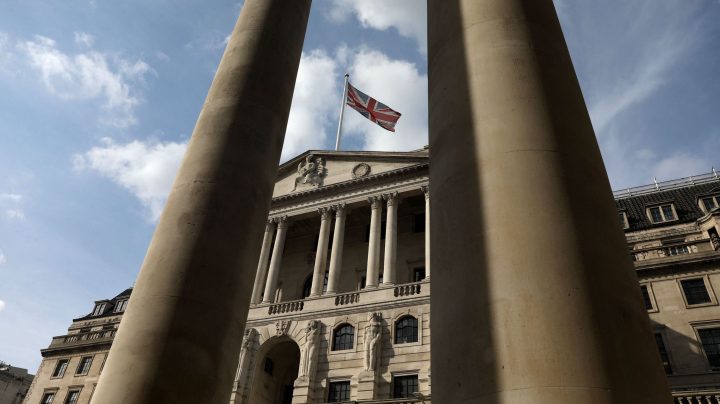
Why investors are bailing on the UK

At one point Monday, the yield on Britain’s 10-year bond — it’s called the gilt — reached 4.28%. That’s the highest it’s been since 2008. Which is another way of saying the price of U.K. government bonds crashed. Meanwhile, the pound hit a record low against the dollar. All said, investors suddenly are pulling their money out of Britain.
The prices of British bonds fell more Friday than they have ever fallen in a day in more than three decades.
“I’ve never seen investors push back on anything this aggressive. I mean, it’s historic,” said Simon Harvey, head of analysis at Monex Europe.
This all erupted last week after the British government announced that it would help people with their soaring energy bills and cut taxes. Price tag: $225 billion.
“This is the question markets are asking: How do you pay for this?” said Dan Hamilton, a senior fellow at the Brookings Institution.
The answer?
“By extra borrowing,” he said.
Extra borrowing at a time when interest rates are rising, making that extra-expensive for the government.
Ilaria Maselli is a senior economist with The Conference Board. She said this is what investors are thinking:
“The outlook for growth has worsened, the budget deficit is huge, interest rates are rising, so I’m less sure, compared to a year ago, whether the government would be able to give me my money back,” she said.
So investors aren’t gonna buy U.K. bonds unless they get paid more to do it — one reason bond yields have gone up so much. But it’s more than just worries about debt. It’s also anxiety over what amounts to contradictory economic policy.
“The tax cuts act in completely the opposite direction to what the Bank of England is trying to achieve,” said Andrew Mulliner with Janus Henderson.
There’s a fear that tax cuts could fuel inflation, while the Bank of England, the central bank, is trying to fight inflation by raising interest rates. Here’s how Mohamed El-Erian, chief economic adviser at Allianz, put it to the BBC:
“The image of driving a car with the chancellor [of the exchequer] foot on the accelerator and the governor [of the Bank of England] foot on the brake. That is not a good way to drive the U.K. economy,” he said.
The BoE could hit the brake harder, raise interest rates and send the U.K. into a recession, or it could not. Either way, the current tug of war is not great for the nation’s economy, its currency or its credibility.
There’s a lot happening in the world. Through it all, Marketplace is here for you.
You rely on Marketplace to break down the world’s events and tell you how it affects you in a fact-based, approachable way. We rely on your financial support to keep making that possible.
Your donation today powers the independent journalism that you rely on. For just $5/month, you can help sustain Marketplace so we can keep reporting on the things that matter to you.

















